Knowledge Hub
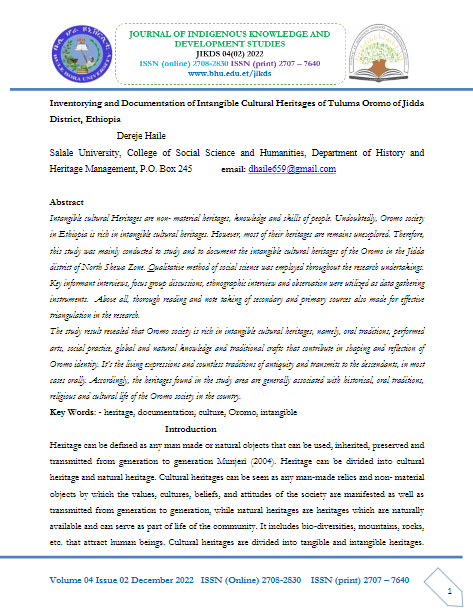
Inventorying and Documentation of Intangible Cultural Heritages of Tuluma Oromo of Jidda District, Ethiopia
2022
Author(s): Haile D
This study was mainly conducted to study and to document the intangible cultural heritages of the Oromo in the Jidda district of North Shewa Zone. The study result revealed that Oromo society is rich in intangible cultural heritages, namely, oral traditions, performed arts, social practice, global and natural knowledge and traditional crafts that contribute in shaping and reflection of Oromo identity.
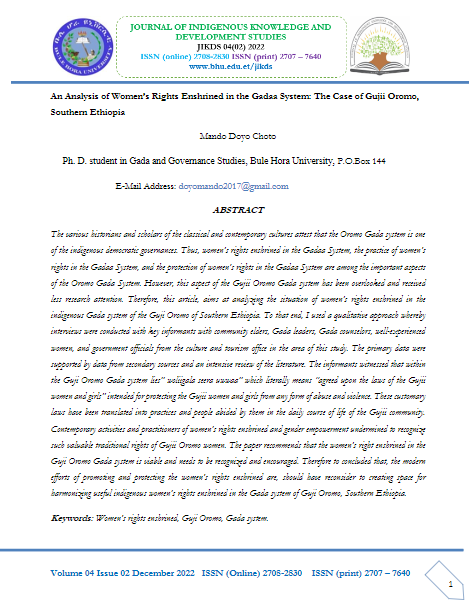
An Analysis of Women’s Rights Enshrined in the Gadaa System: The Case of Gujii Oromo,Southern Ethiopia
2022
Author(s): Choto MD
This article aims at analyzing the situation of women’s rights enshrined in the indigenous Gada system of the Guji Oromo of Southern Ethiopia. The paper recommends that the women’s right enshrined in the Guji Oromo Gada system is viable and needs to be recognized and encouraged.
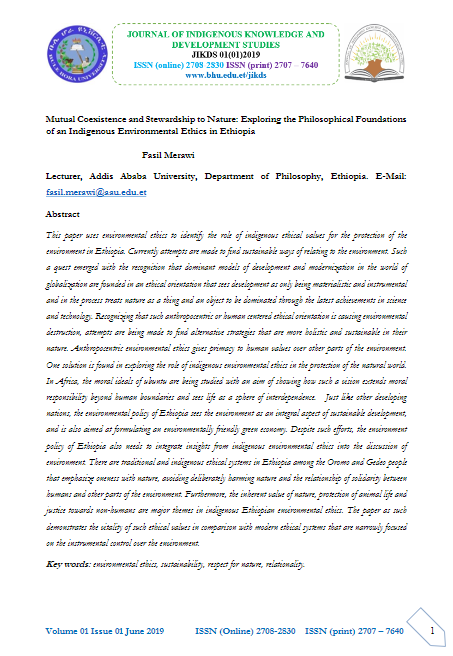
Mutual Coexistence and Stewardship to Nature: Exploring the Philosophical Foundations of an Indigenous Environmental Ethics in Ethiopia
2019
Author(s): Merawi F
This paper uses environmental ethics to identify the role of indigenous ethical values for the protection of the environment in Ethiopia. Currently attempts are made to find sustainable ways of relating to the environment. The paper as such demonstrates the vitality of such ethical values in comparison with modern ethical systems that are narrowly focused on the instrumental control over the environment.
This peer reviewed Journal was created in response to community requests for information about research that has been conducted among their people. In addition, articles may be summaries of research that have already been published so we can share what has been completed with the communities.
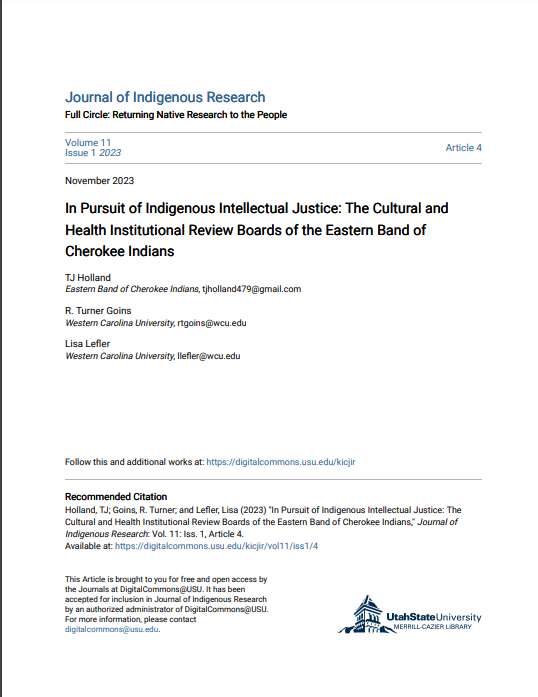
In Pursuit of Indigenous Intellectual Justice: The Cultural and Health Institutional Review Boards of the Eastern Band of Cherokee Indians
2023
Author(s): Holland TJ, Goins RT, Lefler L
This article study the initiative of the Cultural and Health Tribal institutional review boards (IRBs) for the Eastern Band of Cherokee Indians (EBCI) in reviewing academic research among the Tribe.
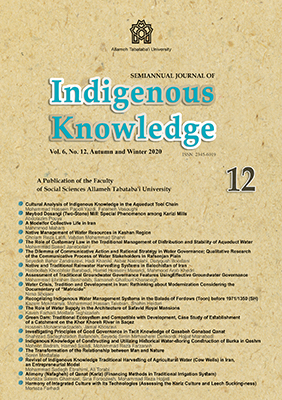
The main objective of Indigenous Knowledge is to provide an intellectual platform for national and international researchers to discuss their most recent findings related to different types of indigenous knowledge. By doing so, the journal hopes to improve the status of the field in Iran and in the world and to find solutions to theoretical and practical problems the profession is faced with.
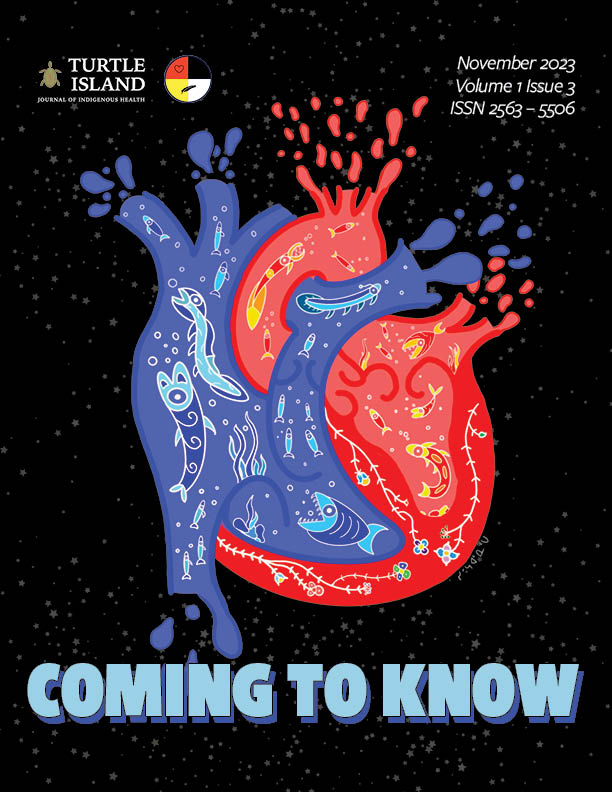
Turtle Island Journal of Indigenous Health
2020
Publisher/Organisation: Turtle Island Journal of Indigenous Health
The Journal honours all Indigenous ways of knowing, whether they flow from Turtle Island or other homelands, and presents scholarly research that is clearly informed by these ways of knowing. The Journal offers a forum for dialogue and knowledge translation between academia, Indigenous communities and broader society.
The Indigenous Knowledge of Camel Husbandry in Kalkooyi Nomads Territory
2023
Author(s): Sarvestani AA, Barani H, gooya A
The study aimed to identify the indigenous knowledge of camel husbandry in the territory of Kalkuyee nomads in Masileh plain of Qom province, who have a long history of camel husbandry in this region.
Biodiversity Credits: A Guide to Support Early Use with High Integrity
2023
Author(s): World Economic Forum
Improper use of biodiversity credits may harm nature and local communities, as well as exposing buyers to strategic, operational and reputational risks. This report offers initial guidance for companies to take early action with high integrity on biodiversity credits while standards and advice are evolving
Traditional Methods of Performing the Art of Balochi Embroidery in Non-Native Clothing Design
2023
Author(s): Saedi F, Ghasemi M
The study used analytical-descriptive method to understand the division of patterns and techniques of Baloch sewing and how to implement the techniques according to the background fabric.



